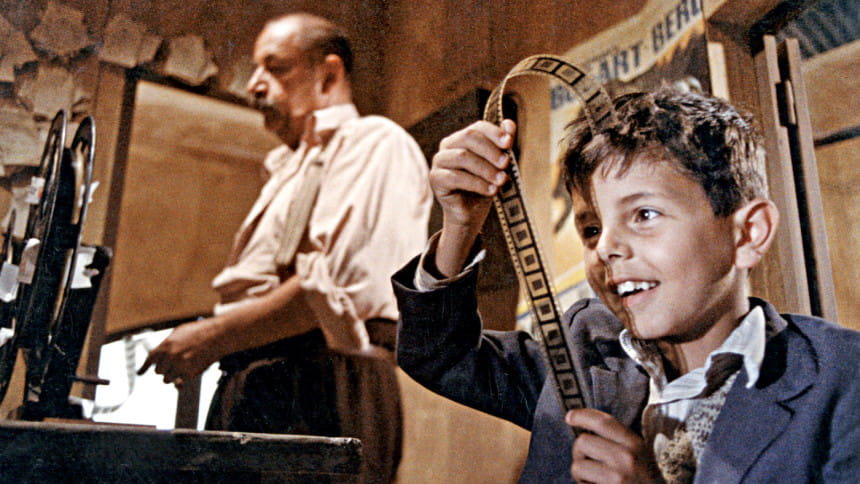My first encounter With Cinema Paradiso

I
Rafael, my housemate at Huntingdon Road, Cambridge, asked me one day if I had watched Cinema Paradiso. When I said no, Rafael looked at me in silence for a moment. 'Tomorrow's the last day, they're screening Cinema Paradiso at the Arts Theatre. Do watch. You'll like it'.
I decided to go for the afternoon screening. Rafael didn't give me any details. I also didn't find out about the cinema before watching. When I reached, there weren't more than ten people in the hall. I chose a seat. Then I silently waited for the lights to go out.
II
Toto, a little boy from a small village in Sicily, is now a big movie director in Rome. After many attempts, his mother managed to convey the message to Toto's girlfriend via phone that Alfredo passed away recently. His funeral will be held the following afternoon. Toto has to attend the funeral.
And thus, the movie starts in flashback. We're transported to a little village in Sicily, just after World War II, and before the advent of television. The life of the villagers centres around the local cinema hall, the Cinema Paradiso. The local priest comes frequently and makes Alfredo, the projectionist, censor each explicit scene.
Toto's father had perished in war. Cinema Paradiso becomes the centre of Toto's universe. Alfredo, who has no child of his own, soon takes up the void left by Toto's father. The movie moves from one plot to another, as Toto grows up and enters his teens, where he meets the love of his life, Elena. All the time though, young Toto's eyes remain fixed on Alfredo's basket of all the censored clips.
III
The better cinemas are the ones that center around one or a set of universal themes. When themes are universal, they touch across generations. This makes a cinema timeless. Following Toto's journey as a child and then as an adolescent, reflected universal experiences I went through, and probably many others did too. The best stories are always those that reflect our own self through the characters and the plot of a film.
The best cinemas have an extra dimension that resonates with people. That, in this case, was the soundtrack. I was watching Cinema Paradiso in an almost empty hall. I was spellbound. My full concentration was on the cinema. Whatever silence there could have been was filled up with the mastery of Ennio Morricone's compositions. A recurring 4/4 piece came back at the right moment to send shivers down my spine. That recurring 4/4 piece haunted me throughout the cinema till the last scene where the composition returned to make the romance of cinema rhyme.
IV
Sadly, like all movies, Cinema Paradiso ended. The lights slowly came back on. The few people who came to watch, slowly made their way out. I remained seated. I was unmoved. The experience was sinking in. A few minutes after everybody left, I was still seated. A thought went through my mind. I did something for the first time. I went downstairs to the ticket counter. I bought a ticket for the last show.
Asrar Chowdhury teaches Economics in classrooms. Outside, he watches Test cricket, plays the flute and listens to music and radio podcasts. Email: [email protected] or [email protected]

 For all latest news, follow The Daily Star's Google News channel.
For all latest news, follow The Daily Star's Google News channel. 



Comments